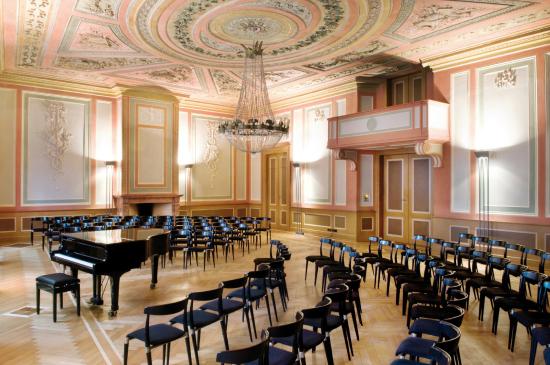Music and the law: freezing in the classroom to avoid an energy shortage?
The landlord must guarantee a minimum temperature of 20° in classrooms. The landlord may not introduce lower temperatures and certainly not enforce them through unauthorized inspections.
From the SMPV's legal advisory practice: Dr. iur. Yvette Kovacs, SMPV legal advisor and attorney at law in Zurich, answers questions from SMPV members.
Question from an SMPV member: My landlady is calling on me to save electricity in order to prevent an energy shortage in Switzerland. She now stipulates a room temperature of 18° in my classroom and recently turned up unannounced to check the temperature. Is she allowed to do that?
Dr. Kovacs: 1 The rights and obligations of tenants and landlords are governed by Articles 253 et seq. OR and in the ordinance issued in this regard. Among other things, these articles stipulate that the tenants are mutually obliged to show consideration and to treat the rented property with care. In particular, the rented property must be handed over and maintained in a usable condition, which also includes a normal room temperature. However, there is no regulation specifying an exact minimum or maximum temperature. In practice, however, guideline values have been developed for various rooms in apartments, which can be found on the website energieswitzerland.ch are listed: A temperature of at least 20° should be maintained in living and recreation areas. This also applies to classrooms.
Unless otherwise agreed in the existing rental agreement, no direct, legally enforceable obligation to conserve resources can therefore be derived from the CO and the associated ordinance, even if the careful and responsible use of resources is always in the interests of all parties involved.
If the temperature falls below the specified guide values, this may constitute a defect under tenancy law. The tenant is then generally entitled to a reduction in the rent. The amount of the reduction depends on the individual case and is at the discretion of the court. In individual cases, a rent reduction of 10 to 20 percent has been granted if the temperature falls below the minimum temperature by a few degrees.
2 The tenancy law is superseded by the public-law laws and ordinances that serve to protect the national supply (National Supply Act LVG).
Article 32 of the LVG can be used as a basis for measures that must be taken to deal with a severe shortage. The Federal Council has not yet declared an imminent power shortage. However, an ordinance has been drafted and is ready to be implemented in the event of an emergency. The draft ordinance contains all possible measures in the event of a severe shortage. This does not mean that all of them will come into force in the event of a shortage. Among other things, indoor heating is to be limited to 20 degrees. This value corresponds to the minimum value that is already practiced today in tenancy law.
How are the bans monitored? The provision is based on the fact that the vast majority of the population abides by the law. Controls and prosecution are the responsibility of the cantons. The LVG does not provide a basis for administrative fines. Violations of the regulations are punished as misdemeanors and can be dealt with by the public prosecutor's office by means of a penalty order. However, there is no provision for monitoring compliance with the measures by private individuals, in particular landlords.
3. the conclusion is that the landlord must guarantee a minimum temperature of 20° in classrooms. The landlord may not introduce lower temperatures and certainly not enforce them through unauthorized inspections








